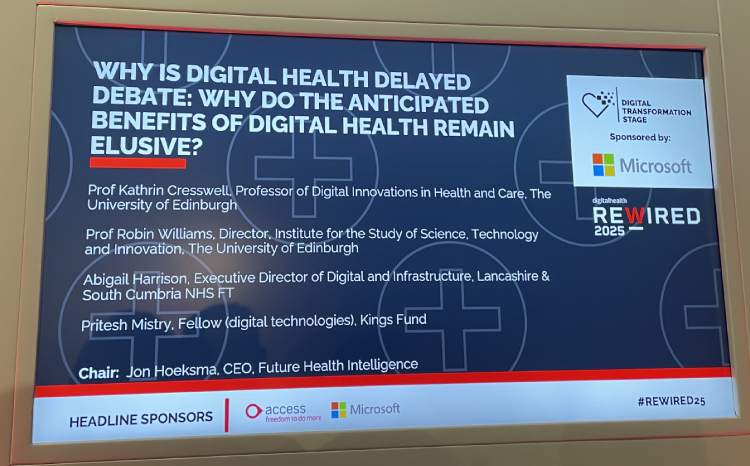MHRA selects five AI-powered medical devices for regulatory pilot
- 6 December 2024

- The Medicines and Healthcare products Regulatory Agency has selected five AI-powered medical devices for its AI Airlock 'regulatory sandbox'
- Technologies chosen include using AI to target patients at risk of COPD, and to improve the efficiency of cancer care
- A pilot phase of the AI Airlock will run until April 2025
The Medicines and Healthcare products Regulatory Agency (MHRA) has selected five technologies for its AI Airlock, a pilot scheme launched to better understand how we can regulate AI powered medical devices.
AI Airlock, which launched in May 2024, is a regulatory “sandbox”, which allows manufacturers to explore, under MHRA supervision in a virtual or simulated setting, how best to collect evidence that could later be used to support the approval of their product.
A pilot phase of the AI Airlock will run until April 2025, followed by the publication of the findings, which will inform future AI Airlock projects and influence future UK AI medical device guidance.
Laura Squire, MedTech regulatory reform lead and chief officer at the MHRA, said: “New AI medical devices have the potential to increase the accuracy of healthcare decisions, save time and improve efficiency, leading to better outcomes for the NHS and patients across all healthcare settings.
“But we need to be confident that AI-powered medical devices introduced into the NHS are safe and stay safe and perform as intended through their lifetime of use.
“By examining the technologies announced today in a safe setting, in partnership with technology specialists, developers and the NHS, we can test and improve the rules for AI-powered medical devices, helping get products like these to the hospitals and patients who need them sooner.”
The aim is for medical devices to be regulated in a way that gets them to the NHS and patients who need them as quickly and safely as possible.
The five selected technologies are:
- Using AI to target at risk patients with COPD – Lenus Stratify is a medical device, developed by Lenus Health, that uses AI to analyse health data and predict serious outcomes from COPD, such as the risk of hospital admission.
- Using Large Language Models to improve the efficiency and accuracy of radiology reporting – Philips aims to improve the workflow for radiologists by integrating AI into their existing systems.
- Using AI performance monitoring platforms in hospitals – Federated AI Monitoring Service (FAMOS) is part of an AI platform developed by Newton’s Tree, that helps hospitals, AI developers and regulators monitor AI performance in real time.
- Using AI to improve the efficiency of cancer care – OncoFlow uses AI to help healthcare professionals involved in cancer care create personalised management plans for cancer patients.
- Using AI to facilitate clinician decision-making – SmartGuideline is an AI-powered medical device that allows clinicians to smart-search national guidelines with normal questions.
Lord Vallance, science minister, said: “AI Airlock is a great example of government working with businesses to enable them to turn ideas into products that improve lives.
“This shows how good regulation can facilitate emerging technologies for the benefit of the UK and our economy.”
Meanwhile, in January 2024, the MHRA published its regulatory roadmap for the development of new regulations for medical devices in the UK.





